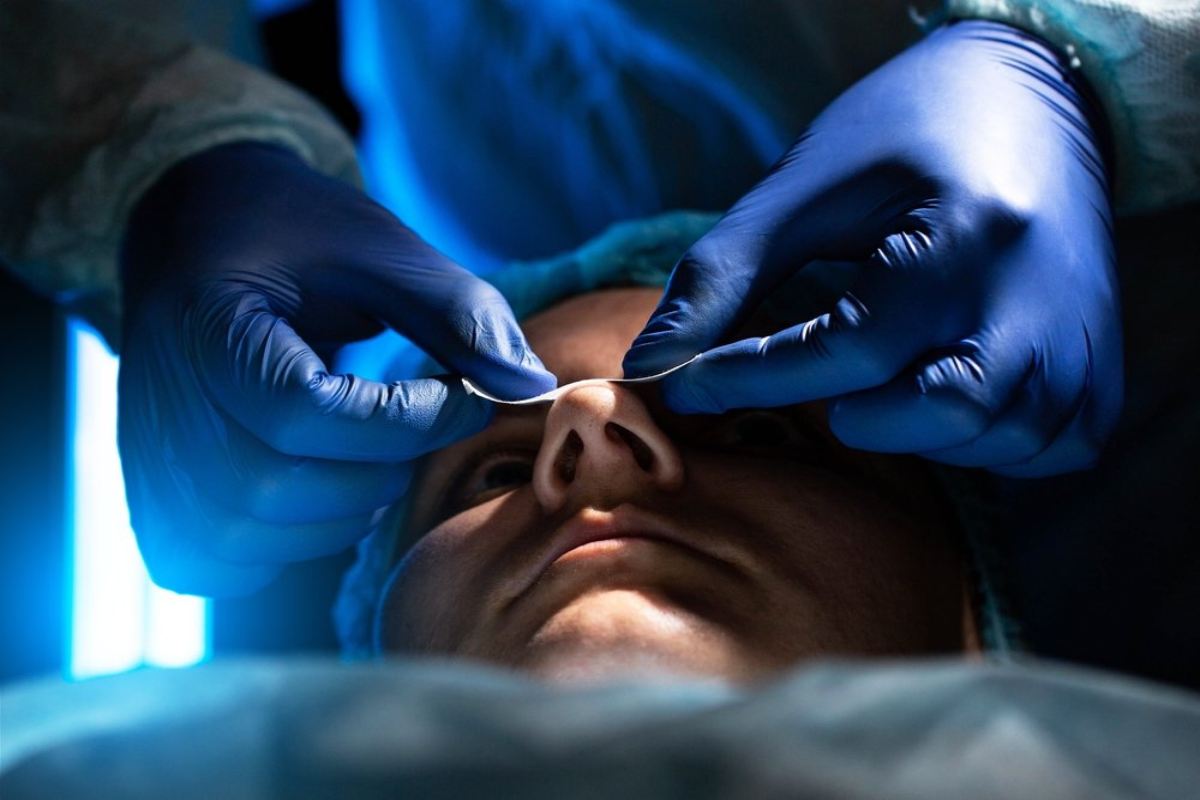Deviated septum surgery, also known as septoplasty or septum rhinoplasty (septorhinoplasty), is a medical procedure aimed at correcting a deviated septum, which is a common condition where the thin wall (nasal septum) between your nostrils is displaced to one side. This deviation can obstruct airflow through one or both nostrils, leading to breathing difficulties and potential sleep disturbances. While septoplasty is primarily performed to improve nasal breathing, it can also significantly impact sleep quality and overall well-being. In this blog, we delve into the effects of deviated septum treatment on breathing and sleep, exploring its benefits, considerations, and outcomes.
Table of Contents
Deviated Septum Surgery: A Brief Overview
The goal of deviated septum surgery, frequently performed by an otolaryngologist (a specialist in the ears, nose, and throat), is to enhance airflow and relieve blockage by straightening the nasal septum. Those with persistent nasal congestion, trouble breathing through the nose, recurring sinus infections, or sleep disorders, including snoring and sleep apnea, may benefit from the surgery.
Depending on the situation’s complexity, local or general anaesthesia is usually used during septoplasty. The surgeon creates an incision within the nose during the process, and they may remove extra bone or cartilage to realign the septum more centrally. In certain instances, other treatments like sinus surgery or turbinate reduction may be carried out simultaneously to maximise nasal function.
Benefits of Deviated Septum Surgery on Breathing
Better Nasal Airflow: Deviated septum surgery improves nasal airflow by reversing the structural defects of the septum. This makes breathing easier and more effective.
Decreased Nasal Congestion: Following septoplasty, patients frequently report relief from chronic nasal congestion, which improves nasal breathing and reduces the need for nasal decongestants.
Increased Exercise Tolerance: People who participate in physical activities benefit from improved nasal breathing as it increases oxygen intake and lessens the feeling of being out of breath when exerting oneself.
Relief of Sinus Problems: Improving nasal drainage lowers the risk of sinus blockages and infections, which helps ease the symptoms of chronic sinusitis. This is achieved by treating a deviated septum.
Impact of Deviated Septum Surgery on Sleep
Decreased Snoring: One of the causes of snoring is a deviated septum, which can impede airflow and cause turbulence and vibration of the throat’s tissues. Septoplasty can sometimes significantly lessen or completely stop snoring by treating the underlying nasal obstruction, providing the patient and their sleeping companion with calmer and more restful sleep.
Treatment for Sleep Apnea: Although surgery to realign the septum can’t permanently cure obstructive sleep apnea (OSA), it can be a valuable part of an all-encompassing plan. Septoplasty can increase the efficacy of OSA treatment by boosting nasal airflow and working with other therapies like oral appliances or continuous positive airway pressure (CPAP) therapy.
Improved Sleep: Following deviated septum treatment, many patients report increases in both the quality of their sleep and their level of alertness during the day. Improved nasal breathing reduces the likelihood of nose congestion or pain causing sleep disruptions, resulting in a more refreshing sleep pattern.
Considerations and Potential Complications
Even though breathing and sleep can greatly benefit from deviated septum surgery, it’s essential to be aware of potential risks and restrictions. Typical things to think about are:
Postoperative Discomfort: Following a septoplasty, patients may have transient edoema, bruising, or nasal congestion. This might affect their comfort during the first few days of recuperation.
Risk of Bleeding and Infection: Following deviated septum surgery, there is a risk of bleeding and infection, just like with any surgical procedure. Patients are typically advised to avoid activities that may increase nasal pressure, such as strenuous exercise, to minimise these risks during the early stages of healing.
Nasal Septal Perforation: Rarely, a septoplasty procedure may leave a perforation (hole) in the nasal septum. This can cause symptoms like nosebleeds, whistling sounds made while inhaling, and nasal crusting. Postoperative surveillance and careful surgical technique can help lower the risk of this complication.
Persistent Nasal Obstruction: Although septoplasty attempts to increase nasal airflow, some people may continue to have obstructions in their nasal passages or recurrent deviations that call for more care, including revision surgery or additional therapies.
Change in the Shape of the Nose: Very rarely the nose can look different following surgery. Your surgeon will be able to discuss this with you at your pre surgery meetings.
Cosmetic Considerations: Deviated septum surgery can have cosmetic benefits in some cases, but its primary goal is to improve nasal breathing and airflow functionally. Septoplasty can help create a more balanced and aesthetically acceptable nasal look by addressing asymmetries or abnormalities of the nasal septum. However, it is essential to clarify expectations with the surgeon beforehand, as septoplasty alone may not address all cosmetic concerns, and additional procedures such as rhinoplasty may be necessary for desired outcomes.
Conclusion
In summary, deviated septum surgery represents a valuable treatment option for individuals seeking relief from nasal obstruction and associated sleep disturbances, offering the promise of improved breathing, enhanced sleep quality, and a better overall quality of life. If you’re experiencing nasal obstruction, consider consulting with a healthcare provider to explore deviated septum treatment options tailored to your needs, including potential cosmetic surgery in London.

